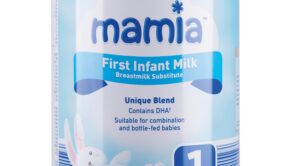In the papers this week 3 – 9 Oct 2009

Food prices fall at rates last seen in the 1930s; C&C to revamp Magners marketing strategy; Mass card maker used name of suspended cleric
9 October 2009
Tobacco giant Philip Morris Ltd and Maurice Timony, an independent retailer from Donegal, have filed a joint lawsuit seeking to overturn the tobacco display ban.
The Irish Times reports their case was filed before Dublin’s High Court on Tuesday; on the grounds that the ban severely restricts their ability to provide trade and services thus violating Irish constitutional law and EU law.
Tesco has announced it spent £15 million (€16.2 million) changing the stock in its Irish stores under its price-cutting programme. The supermarket giant, which operates in 14 countries, said it made profit before tax and one-off items of £1.57 billion, and sales rose 9.3% to £27.8 billion. The Irish Times also reports that while Irish suppliers complained about Irish brands receiving less shelf-space, the retailer claimed customers responded enthusiastically, with "significant uplifts in volumes".
Meanwhile rival Sainsbury’s has posted a slowdown in second-quarter sales, according to The Independent (UK). Chief executive Justin King warned falling inflation will force down sales growth across the sector over the coming months, but vehemently denied the group’s underlying sales had fallen behind those of Tesco since the end of August, as its competitor claimed on Tuesday.
The Irish Independent takes a look at the various logos which now identify Irish produce, including new arrivals, Love Irish Foods and the National Dairy Council quality mark. ShelfLife editor Caroline Byrne commented that many different logos on shelves, do "run the risk of confusing consumers. Time will tell, but when retailers work with the schemes it can be great for Irish business and consumers alike."
And while Irish food is increasingly being highlighted in stores, Irish beef is also gaining in popularity over in Britain. According to Stephen Cadogen in the Irish Examiner, unfortunately Ireland’s €847 million per year beef exports to Britain come at a huge cost to farmers. Production efficiency enables Irish farmers to sell cattle cheaper; but many of them are also accepting a greater "level of economic hardship" than their UK counterparts. British beef farmers have also complained Asda and Sainsburys, sell only 68% and 45% respectively of fresh British beef.
The High Court heard this week that Thomas McNally of Longford-based mass card company MSC Cards, knowingly used the name of a priest on cards who had been suspended. However, The Irish Examiner reports that McNally defended this practice during his constitutional challenge to the proposed Charities Act. He said Fr Oskar Mkondana, based in Mangochi in Malawi, was still entitled to say mass in private and therefore complied with the intentions stated on his company’s cards.
Despite the recession, sweet-toothed consumers are still snapping up Thorntons chocolates, reports The Guardian (UK). The company has announced a 2.3% rise in first quarter sales, compared to the same period last year which included contributions from Woolworths and Birthdays, both of which no longer exist. Thorntons’ shares have subsequently climbed considerably from 5.75p to 123.75p.
Champagne is likely to plummet in price as a result of the recession, reports The Times (UK). Wine-trade experts predict that the price of even vintage champagne could fall to as low as £10-£12 a bottle by December, about half its current price, as retailers try to offload stocks. Champagne sales fell by 45% in the first six months of this year. Apparently the good news for champagne aficionados could be short-lived though, as France has already taken measures to reduce next year’s grape production to half its current level.
Drinks group C&C has said its first-half profit fell 9.9% as economic conditions weakened. The Irish Independent reports that despite the drinks company cutting prices and introducing pear and draft cider varieties; cider sales fell 4.2% in the Irish market, and sales from continuing operations fell 11% to €257.5m. Nevertheless, the beverage maker expects to stabilise sales volumes and full-year operating profit to be at the top end of €77m to €82m.
In a bid to improve its fortunes, C&C is planning to revamp its Magners marketing strategy. Chief executive John Dunsmore, has been quoted in The Irish Independent as stating that since its launch across Britain, Magners has been associated with the "on ice" proposition. However he believes the company needs to convince UK consumers of the "intrinsic reasons" why they should gravitate towards Magners, rather than solely relying on the over ice proposition.
Food costs are set to plunge even further as prices fall at rates last seen in the second quarter of 1933, according to the Irish Examiner. CSO statistics show prices are down 6.5% over the year. Meanwhile, fruit juice is down 12%, biscuits down 7.5%, margarine prices have fallen 10.5% and potatoes are down 9.4%. Retail Ireland director, Torlach Denihan, said the Government must take immediate action to encourage shoppers to start spending again.
In order to counteract poor sales, despite such deep price cuts, small business group ISME added the Government needs to cut costs and resist any pay increase demands from the trade unions. Meanwhile, employers’ group IBEC also commented in The Irish Examiner that while a sustained period of falling prices would be very damaging for businesses and the wider economy it does not believe such a deflationary spiral will develop.
Electricity suppliers must reduce costs to ease the pressure on Irish business, according to a report issued yesterday by the National Competitiveness Council (NCC). The NCC report says businesses are struggling to pay Irish electricity charges of 35.5% above the eurozone average and 28% more than in Britain. IBEC group Retail Ireland has agreed called on the Government to cut all state-controlled electricity costs.
Dairy farmers were disappointed this week when the European Commission failed at a special informal meeting in Brussels to propose further action to help solve the crisis facing milk producers. IFA leader and current Copa-Cogeca president, Padraig Walshe, told The Irish Examiner, that: "Without any further action, dairy farmers will lose over €14 billion in turnover before the end of the year."
Ireland has the fourth highest excise duty on beer in Europe, according to an Ernst & Young report published yesterday. The Irish Times reveals that despite tax being nine times the EU average, with the Government pulling in €427 million last year, Ireland is nevertheless still the third highest exporter of home-brewed beer.
Independent family-owned shops make a crucial contribution to the economy and social life of the country, a group of independent retailers heard this week. The Irish Times reports more than 250 people attended the first in a series of events by RGDATA, where economist Jim Power, told delegates in Dublin that the country’s 6,000 independent convenience stores, forecourt shops and supermarkets employed 95,000 people and made a significant contribution to the exchequer.
The IFA has said that for a grocery code to be effective in eliminating abuses by supermarkets, it must be established on a statutory basis and enforced by a properly resourced ombudsman. In a detailed submission to Tánaiste Mary Coughlan, the organisation said the regulation to stop the supermarket sector "abusing its dominant position" was necessary, because retail concentration in Ireland was extremely high; with Tesco, Dunnes and SuperValu/Centra controlling over 70% of the grocery market.
Tesco and Asda are among 25 high street British brands that have been accused of exploiting factory garment workers in Asia by failing to pay them enough to live on. The Guardian (UK) states the report, Let’s Clean Up Fashion, published by a sweatshop campaigning group, criticised UK retailers for having "no coherent strategy" to ensure hundreds of thousands of workers received a decent wage.



 Print
Print






Fans 0
Followers